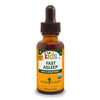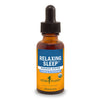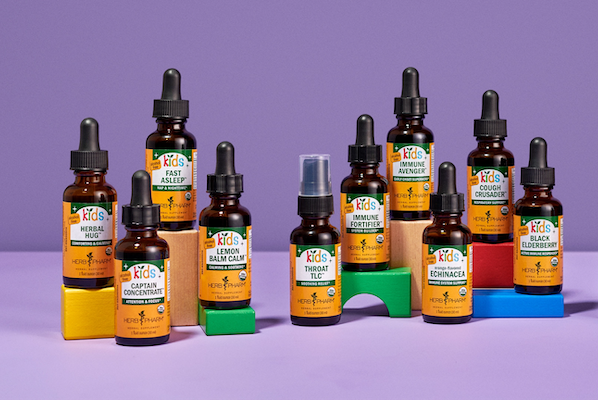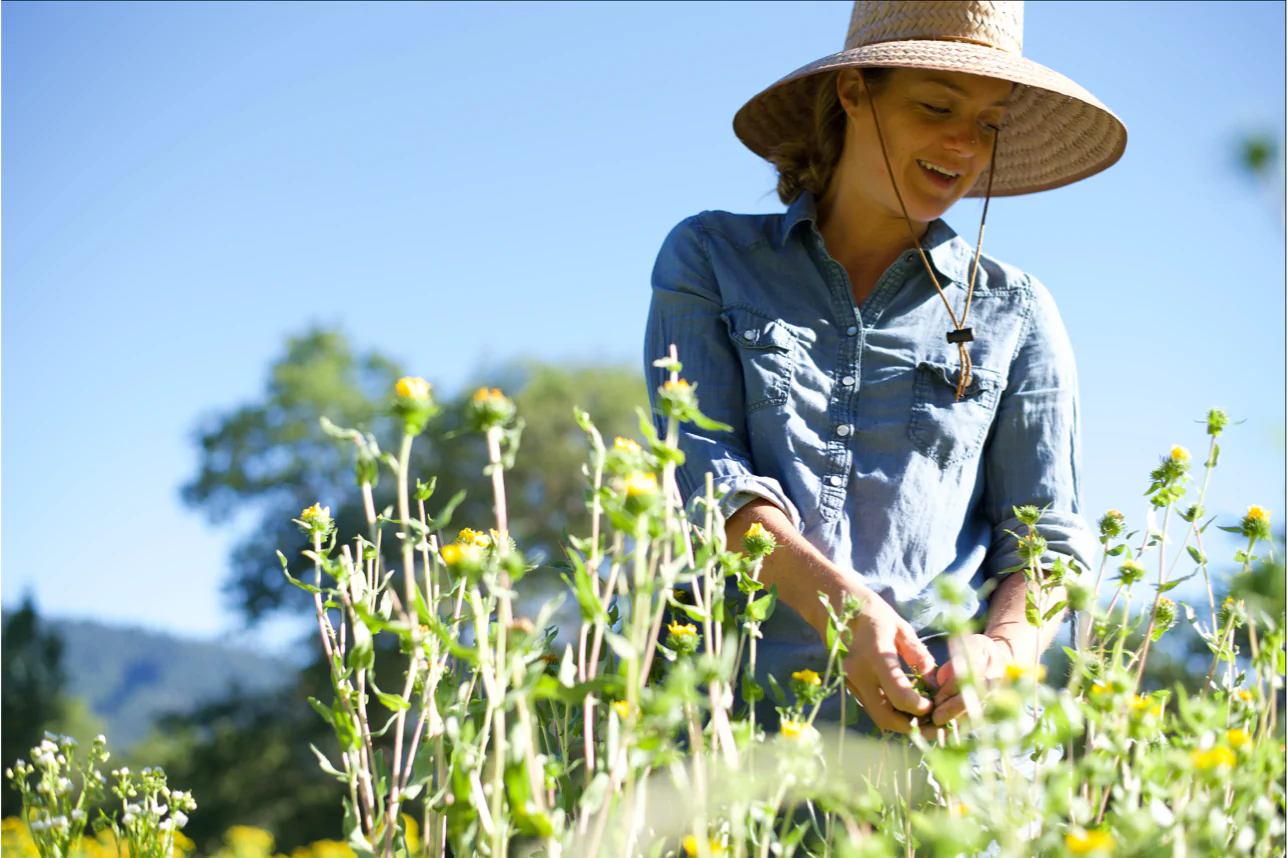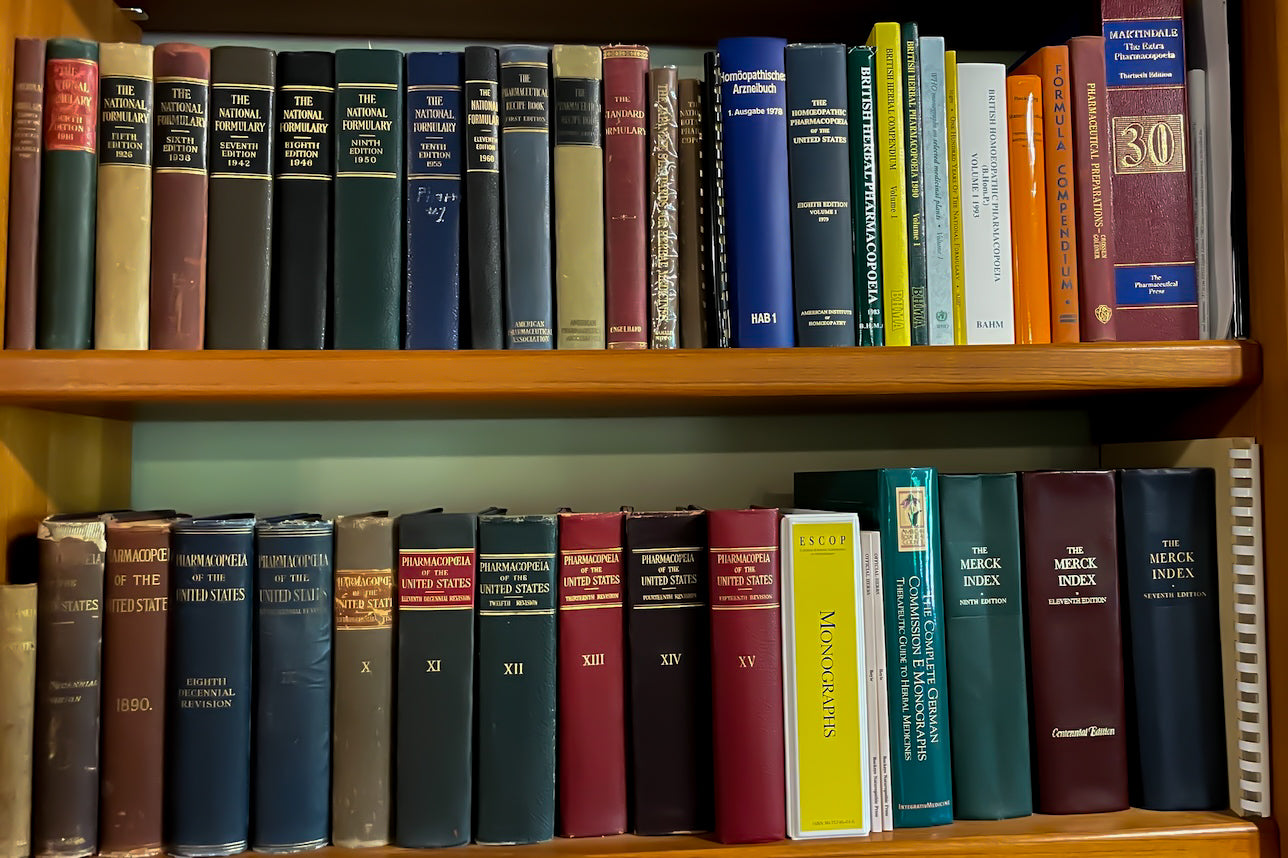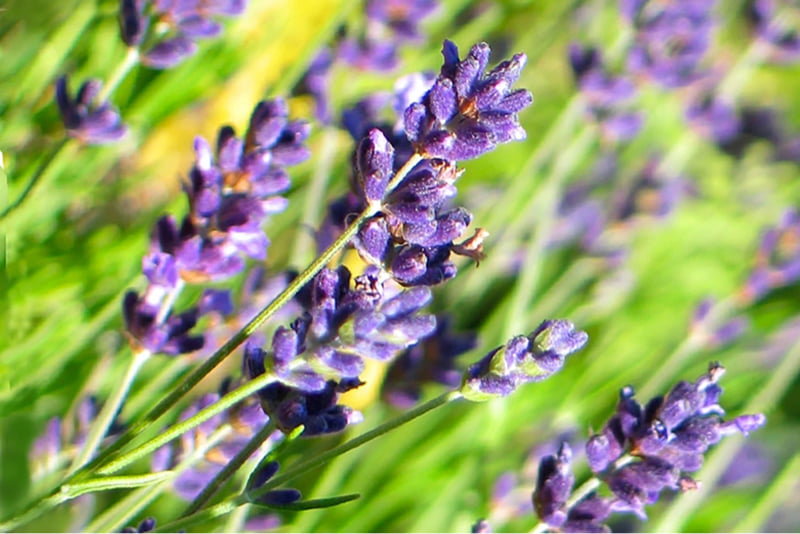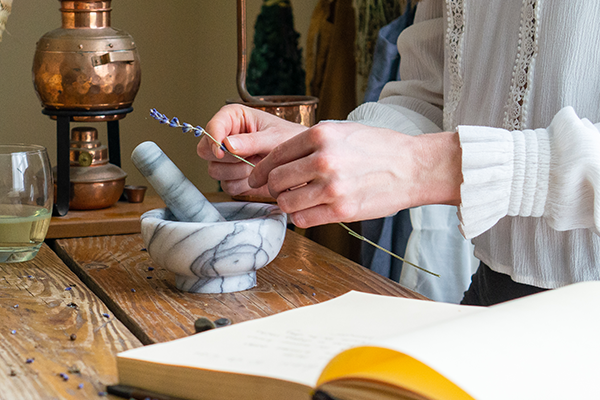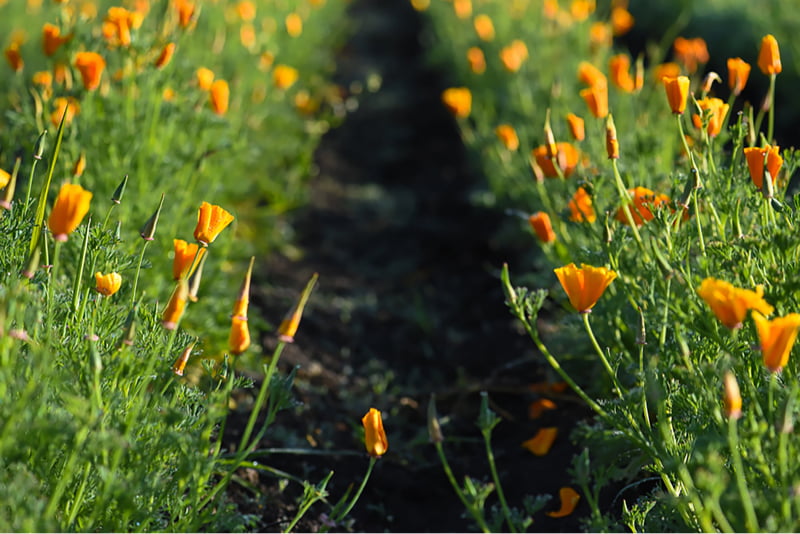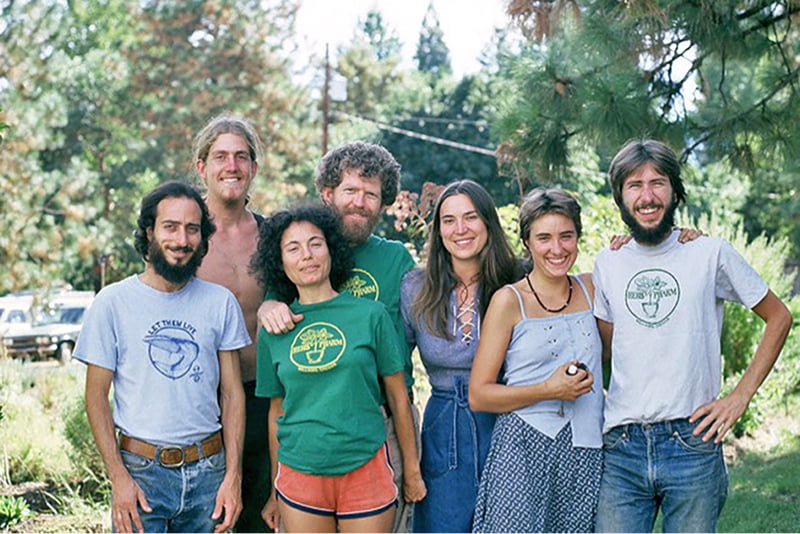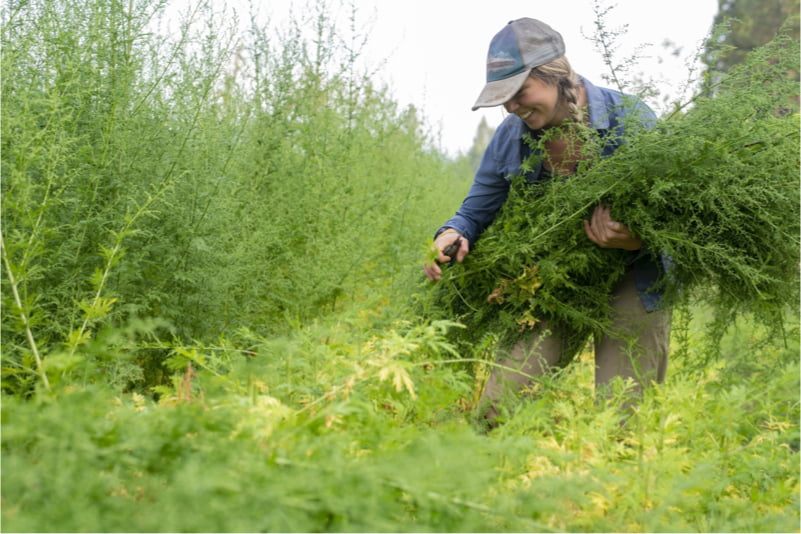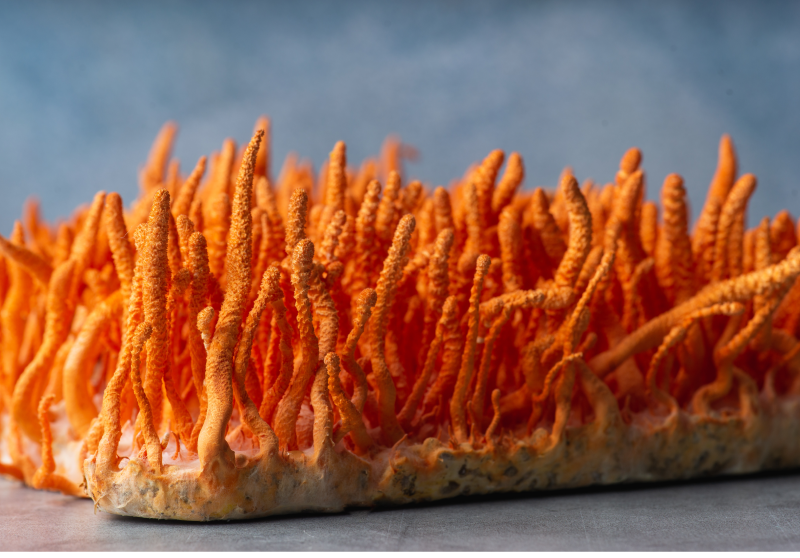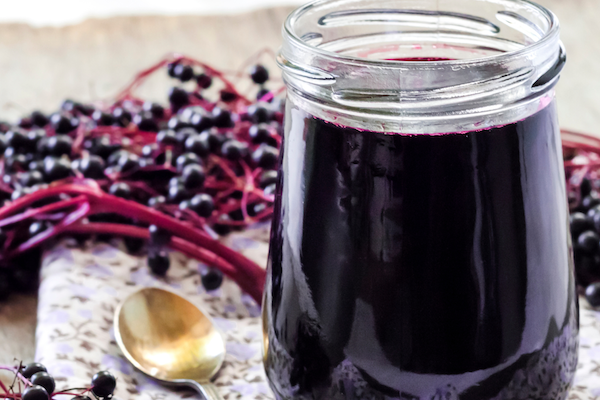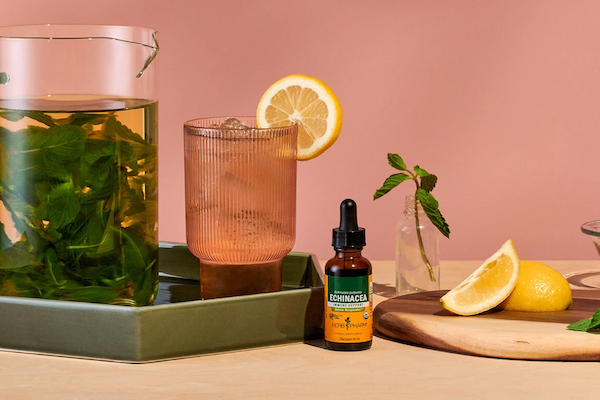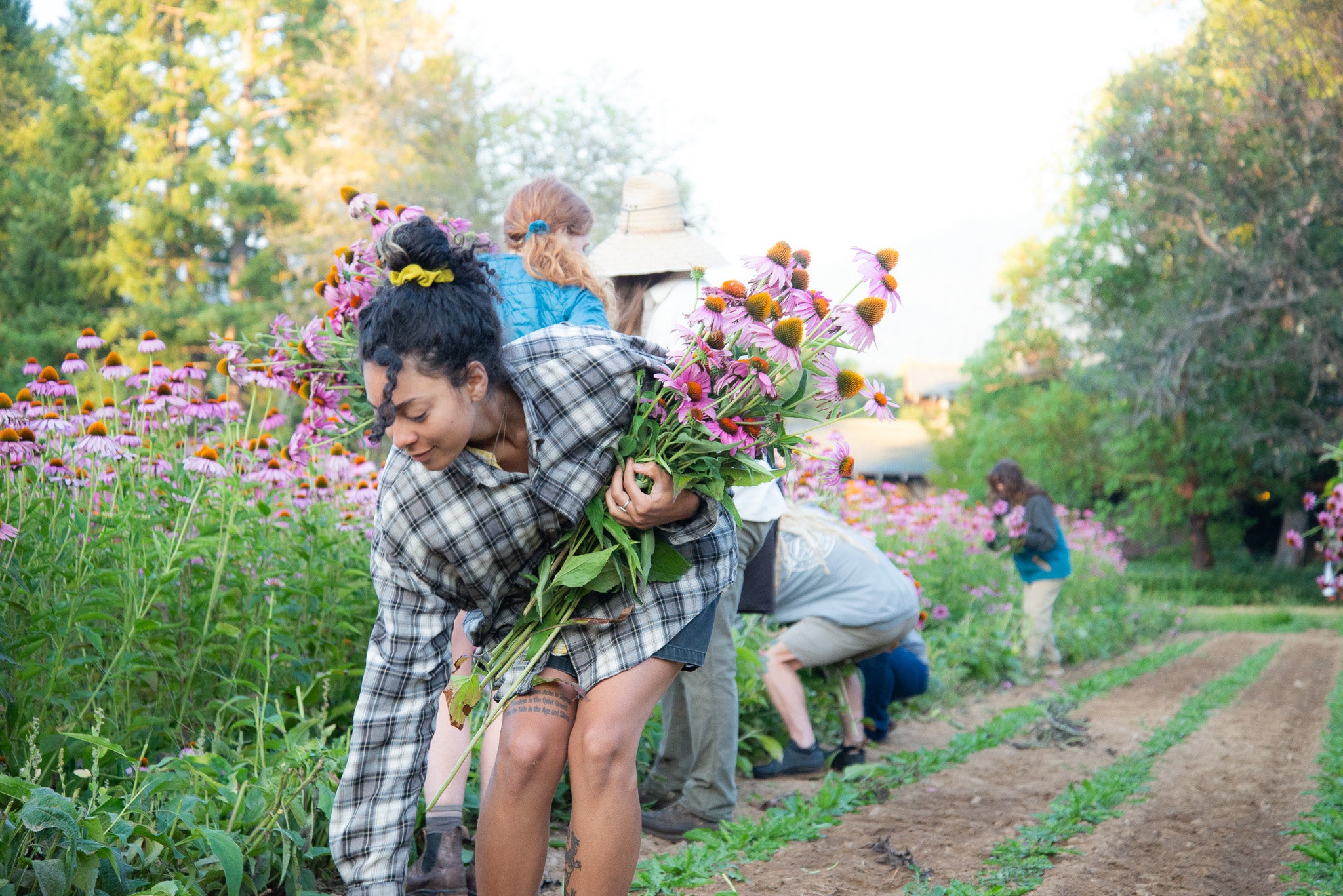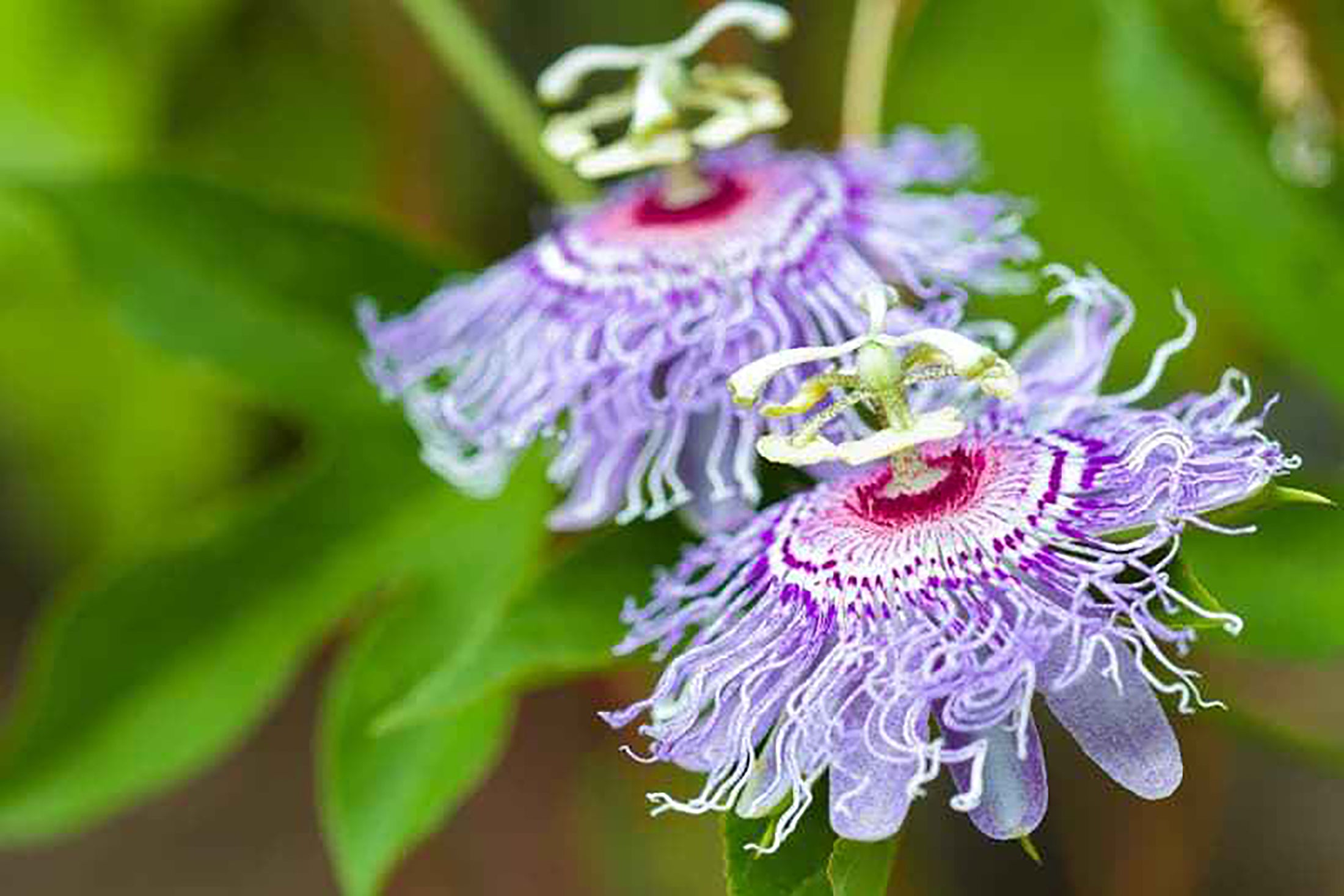At Herb Pharm, we cherish the pollinators that help us grow our beautiful herbs, and love helping people
learn more about them. Over the last four summers, we’ve hosted a free educational event on our farm called
Oregon Pollinator Conservation Day. This event is hosted by Sayaka Lean, a Master Gardener and the Garden
Education Coordinator at Herb Pharm.
Learn more about how Sayaka got involved with organizations like The Oregon Bee Project, discover how this
event came together, and get the details for our 5th annual event happening this summer.

1. Tell us more about this event you’re hosting.
Herb Pharm is hosting the 5th annual Oregon Pollinator Conservation Day at Herb Pharm on July 6th, 9 a.m. – 1
p.m. PST. This event is about our local diversity of native bees and Monarch butterflies. Speakers will
educate participants on insect biology, habitat needs, and local conservation. Participants will also visit
a field of herbs buzzing with bees, fluttering with butterflies, and explore the Herb Pharm Botanical
Garden. This event is free, with a suggested $10 donation.
2. Can you tell us more about your work with the Oregon Bee Project cataloging bee species?
My journey started to involve the Oregon Bee Project in 2017. This citizen scientists-based native bee survey
is now a part of OSU extension service's Master Melittologist program. Over the years of their effort, there
are new discoveries of bees and they assume that nearly 700 species of bees exist just in Oregon. Part of
their mission is to create and maintain a comprehensive publicly accessible inventory of the state's native
bees and their plant-host preferences. They also educate Oregonians on the state's bee biodiversity.
3. Why are pollinators so important?
The simple truth is that we can't live without pollinators! It is an essential ecological survival function.
Without pollinators, the human race and all of Earth’s terrestrial ecosystems would not survive. Around
three-quarters (75%) of the different crops we grow for food depend on pollinators to some extent. According
to the U.S. Department of Agriculture, in the United States alone, pollination of agricultural crops is
valued at 10 billion dollars annually.1
4. Do you have a favorite pollinator?
I love them all, but especially one of the indigenous native bees called squash bees Peponapis
pruinosa. Unlike honeybees, squash bees only collect pollen in the genus Cucurbita, which
includes Winter Squash, Zucchini, and Gourds. Squash bees have existed for over 10,000 years in Central
Mexico. Since Squash was domesticated by the Native Americans in the U.S., the squash bees traveled West.
Squash bees were cited in Oregon for the first time in 2016. Since then, we have discovered Squash bees
right here at the Herb Pharm farm. If you grow Squash at home, you might see these beautiful and useful
squash bees, which have a rich natural history.
Take a Closer Look
See what the event looked like last year and get a glimpse of both our Regenerative Organic
Certified® farms and our Botanical Education Garden – perfect for a day of learning.
Learn More & Join the Fun
If you’re in the southern Oregon area, join us for this in-person event on our Regenerative Organic
Certified® farms. You can register for the event
here. If you’re not in the area or can’t make the
event, there are still a lot of ways you can learn about pollinators! Check out the Learning Center from
the Pollinator Partnership (the creators of Pollinator Week) or explore the many educational pieces
offered by The Oregon Bee Project.
Event Details:
Oregon Pollinator Conservation Day
When: July 6th, 9 a.m. – 1 p.m. PST
Location: Herb Pharm – Williams, Oregon
REGISTER TODAY
[1] Why is pollination important? US Forest Service. Accessed May 20, 2024. https://www.fs.usda.gov/managing-land/wildflowers/pollinators/importance.







